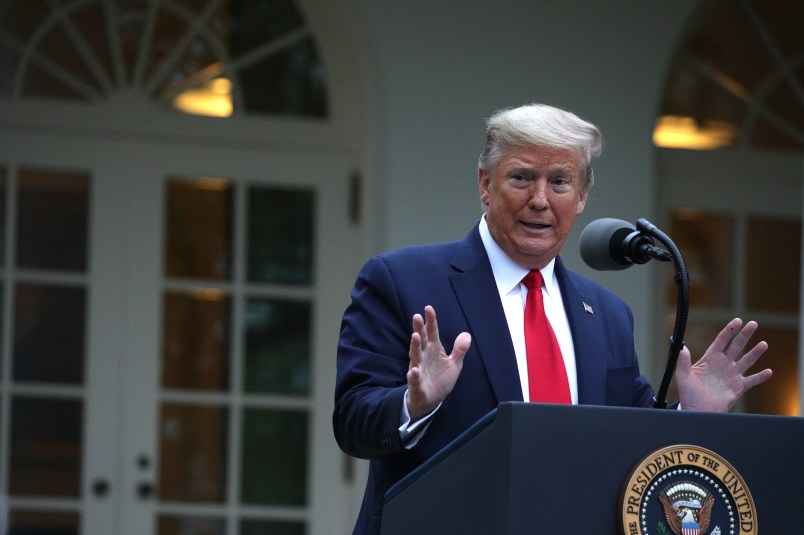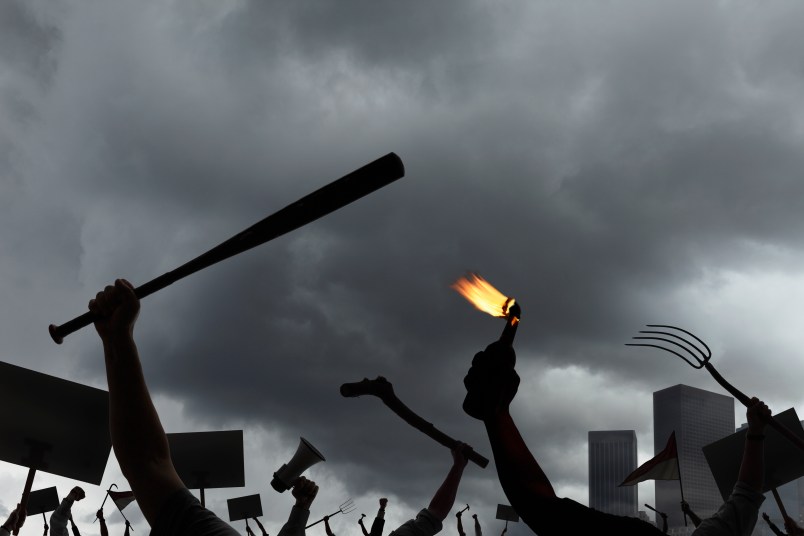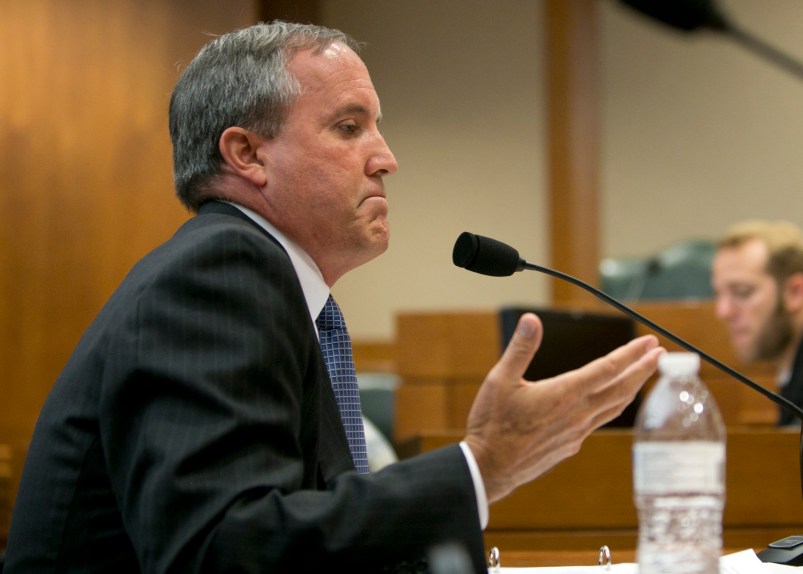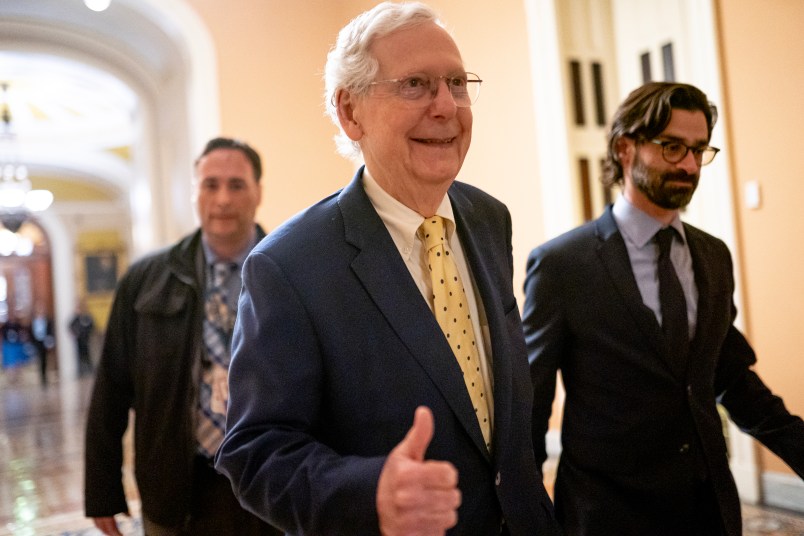This article is part of TPM Cafe, TPM’s home for opinion and news analysis.
In an advertisement released earlier this month, the Lincoln Project, an anti-Trump PAC, claimed that the Trump administration bailed out big banks via its coronavirus stimulus legislation (the CARES Act), leaving Main Street to suffer the effects of the pandemic. “Trump bailed out Wall Street, not Main Street,” a grim voice-over tells the viewer. President Donald Trump quickly took to Twitter hurling insults at the leaders of the PAC. Soon after, Politifact reported the advertisement’s claim was false, and Facebook subsequently labeled the advertisement “partially false.”
But the Lincoln Project’s statement is true by any measure: The Trump administration played a central role in crafting the CARES Act, a piece of legislation that has bailed out Wall Street and not Main Street. The designers of the CARES Act must be held responsible for their actions.
The Trump Administration Played A Central Role In Crafting the CARES Act
Trump officials played a central role in the crafting, negotiations and passage of the CARES Act. In late march, Trump’s economic advisor Larry Kudlow, Treasury Secretary Steven Mnuchin, acting OMB Director Russ Vought and White House Legislative Affairs Director Eric Ueland launched CARES Act negotiations with congressional leaders. Media outlets reported that the Trump Administration guided GOP leaders’ negotiations and helped write the first draft of the bill. Secretary Mnuchin was intimately involved in the negotiation process. Reportedly, he spent so much time with Senate Minority Leader Chuck Schumer that by the end, they playfully referred to each other as “Chuck and Steven.” And by all accounts, the most Main Street-focused element (expanding unemployment insurance and oversight of the Fed’s corporate bailout money) was forced upon Trump’s negotiators by Senate Democrats using what little leverage they had (and, arguably, not very effectively).
While the legislation passed with both parties’ support, GOP leaders and Trump administration officials were the architects, and Trump holds particular responsibility for the parts of the bill — i.e. business lending and corporate bailouts — that his own officials and party leaders wrote.
The CARES Act Small Business “Bailout” Pales In Comparison To Wall Street’s
But even if Trump takes responsibility for the CARES Act, was the bill actually all that bad for Main Street? After all, it set aside billions of dollars for two loan programs to be administered by the Small Business Administration (SBA). Shouldn’t this count for something?
Not if Trump’s SBA failed to effectively move those billions to Main Street. One of the CARES Act loan programs, the Paycheck Protection Program (PPP), which provides SBA-guaranteed loans issued by private banks, has struggled to actually get funds into the hands of small business owners. This is, in part, due to a CARES Act carveout that permits multimillion-dollar franchises to access PPP loans. That carve-out is why we all read reports about companies like Ruth’s Chris Steak House and Shake Shack receiving million-dollar loans before genuinely small businesses saw a penny. Even when small businesses did receive loans, PPP’s strict rules requiring business owners to use most of the money on payroll left many small businesses without enough flexible capital to survive. And although the SBA Inspector General reported that “tens of thousands of borrowers” would be unable to meet the payroll spending requirement, the Trump administration recently released a loan forgiveness application program that does not ease up on the requirement at all.
Moreover, while most small business owners took out loans in the hope that they would be forgiven, the rules for debt forgiveness have changed multiple times. With thousands of businesses now about to ask for loan forgiveness, we could be in for a logistical nightmare that comes back to bite mom-and-pop shops that don’t have access to the same lawyers, lobbyists and connections their larger counterparts have. It is likely that many loans will not be approved for forgiveness even as stay-at-home orders are extended and businesses continue to suffer. This all could have been avoided if the PPP program were structured as simple grants instead of loans, but Mnuchin’s instincts as a banker (and foreclosure king) probably played a role in that decision making process.
Beyond the PPP loans, the CARES Act provides small businesses with low-interest disaster loans of up to $2 million and emergency grants of up to $10,000. These $10,000 grants are the only immediate, fully forgivable, and flexible source of government funding to which small businesses have access. And while the CARES Act gave big corporations access to a $454 billion slush fund — that could be leveraged by the Fed into $4 trillion — it only appropriated $20 billion for the small business grants. To put this in perspective, small businesses were given access to a grant fund just 0.5 percent the size of the $4 trillion the Fed has to play with. It also means there is only enough funding for 6 percent of American small businesses to receive a full $10,000 grant. So, how exactly can these loan programs be a good, or even decent deal, if they have largely failed to provide effective support to small businesses?
The Wall Street Bailout Was Meant To Help Wall Street, Not Small Businesses
Trump leaders have argued that the $4 trillion Wall Street slush fund created by the CARES Act was actually meant to help everyday Americans keep their jobs — without the money, these large corporations and banks would not be able to retain their employees or lend to small businesses. Even PolitiFact used this top-down argument, contending that the Wall Street fund was “not created with bailing out Wall Street as its endpoint,” but instead was meant to provide liquidity that would allow big banks to continue lending to Main Street businesses.
But if the Fed’s slush fund money was really intended for Main Street businesses and the states and municipalities that support them, why didn’t the Trump administration just send it directly to these groups? Instead, the CARES Act set aside hundreds of billions for Wall Street, while states and municipalities have been left to file for bankruptcy, and more than 100,000 small businesses have permanently closed.
There is no better indicator of the dynamic between Wall Street and Main Street than the stock market’s deviance from the actual economic conditions ordinary Americans face. Since the Trump administration pushed through its Wall Street bailout and the Fed began buying up risky corporate bonds, the plunging stock market has rebounded dramatically, helping large corporations recover previously high valuations. Meanwhile, Trump’s SBA has struggled to get loans to small businesses, many of which have already had to close their doors and lay off employees.
It is clear the Trump administration has not provided Main Street with the same support it has for Wall Street during the pandemic. Yet media outlets and fact checkers are allowing this truth to be manipulated in their coverage of Trump’s twitter rants. And, while the latest stimulus proposal that passed in the House Friday did offer some short-term solutions to the small business loan and grant programs, congressional Democrats have largely failed to provide alternative, long-term solutions that will allow Main Street businesses to survive the pandemic.
It is vital that reporters, fact-checkers and Democrats hold the Trump administration accountable for their failure to protect small businesses during a crisis that is destroying Main Street as we speak. If they allow Trump to rewrite history, small businesses will continue to lose out to large corporations that will claim an even larger stake in the economy.
Miranda Litwak is a researcher for the Revolving Door Project.









